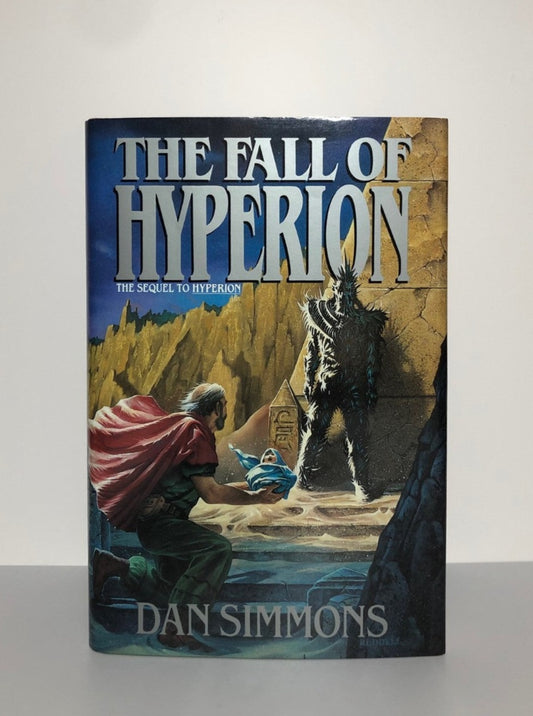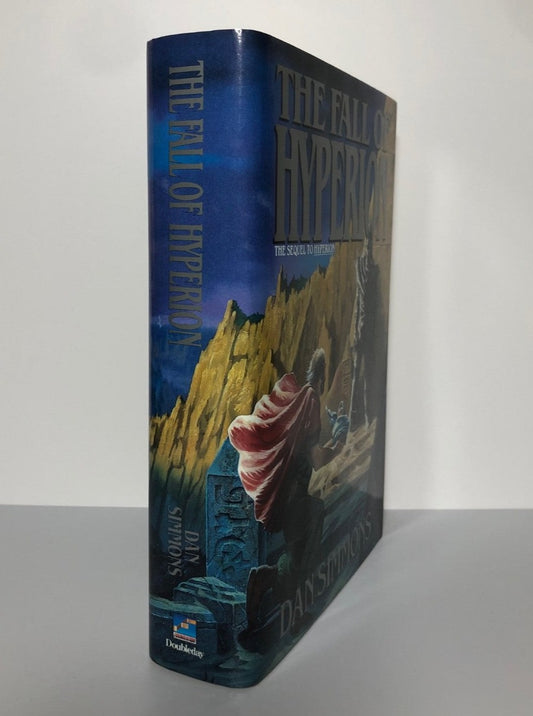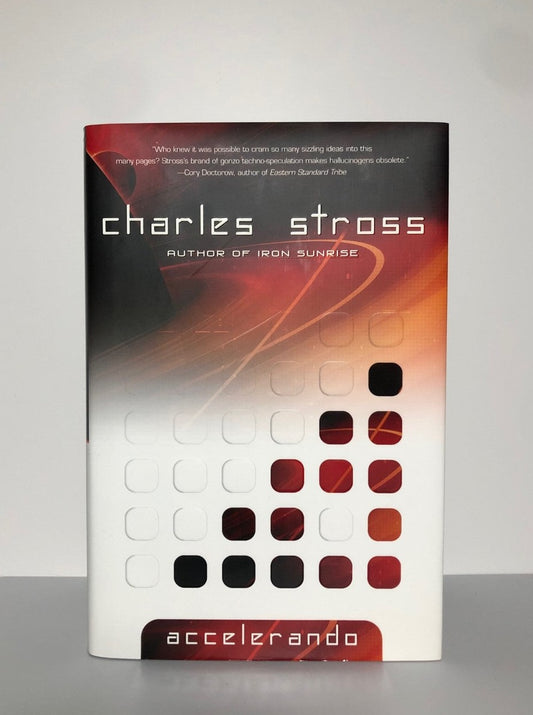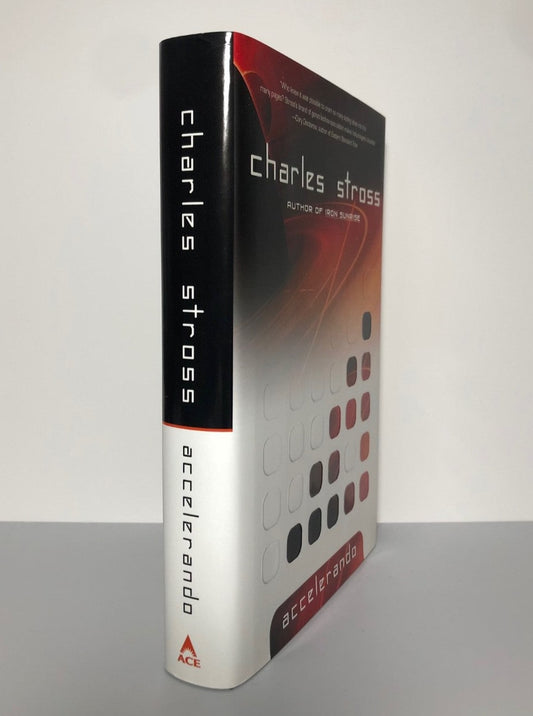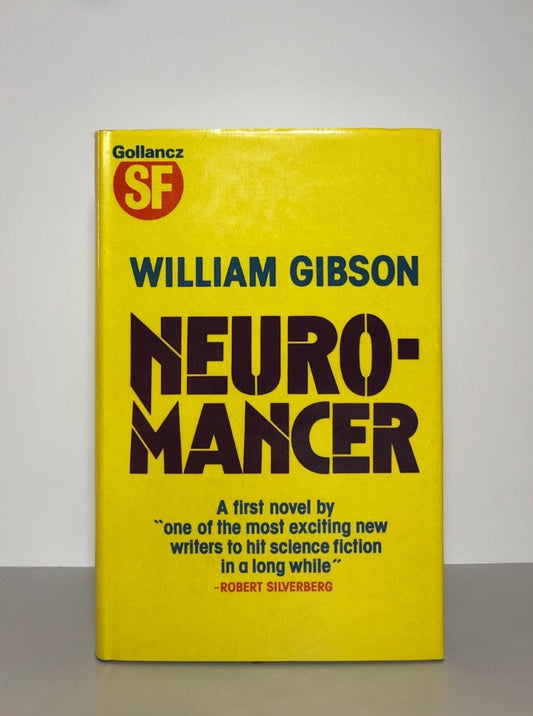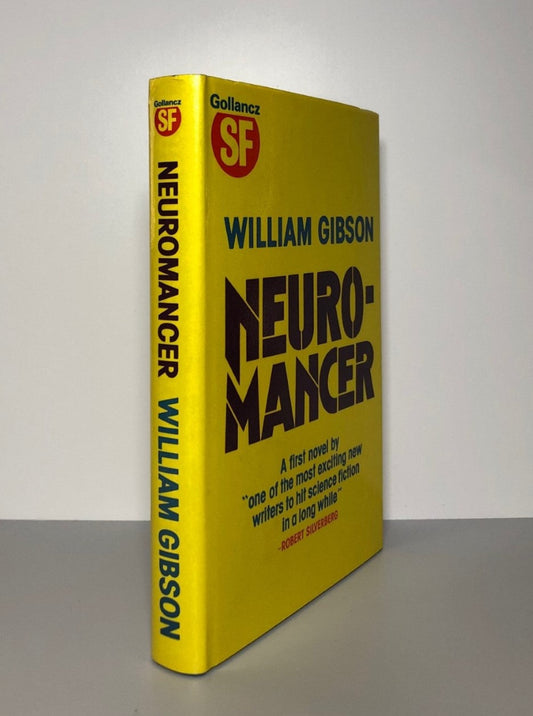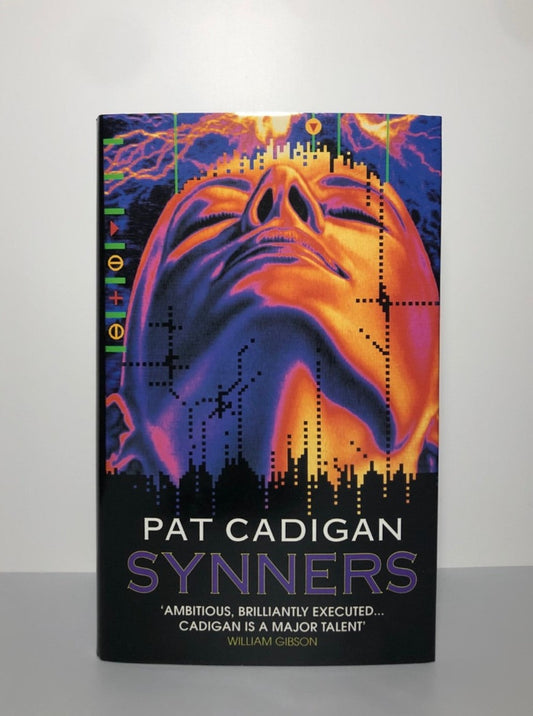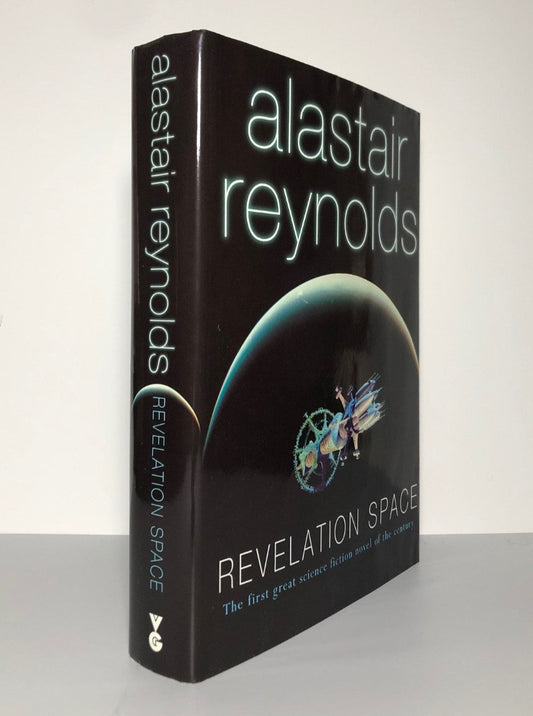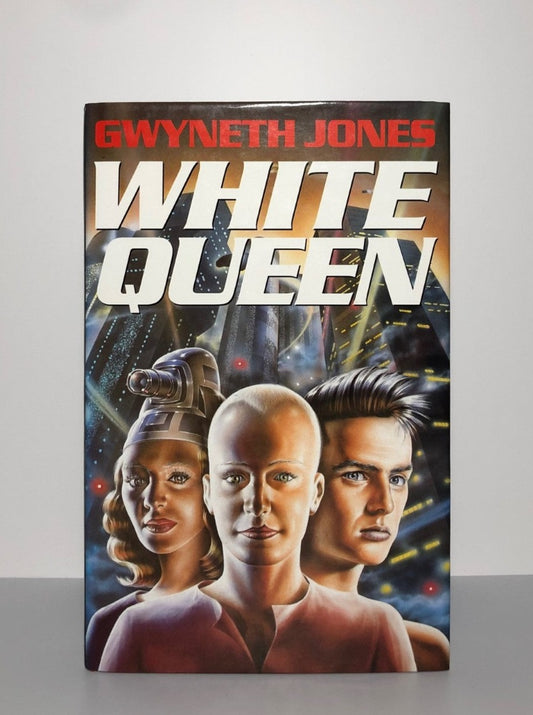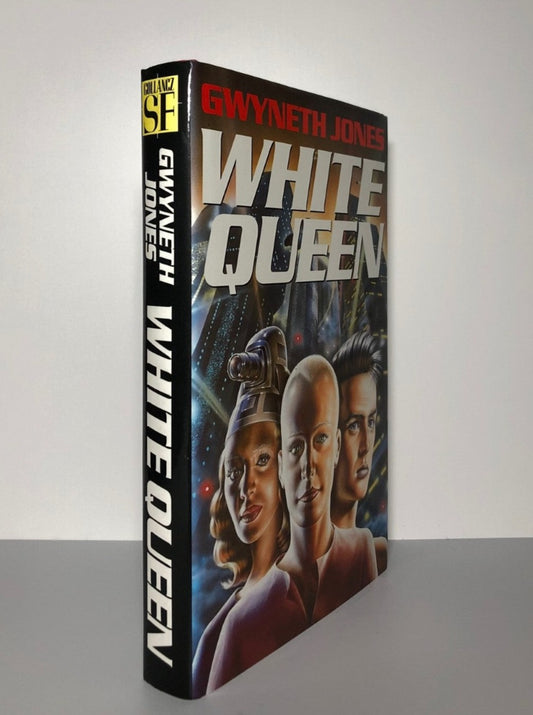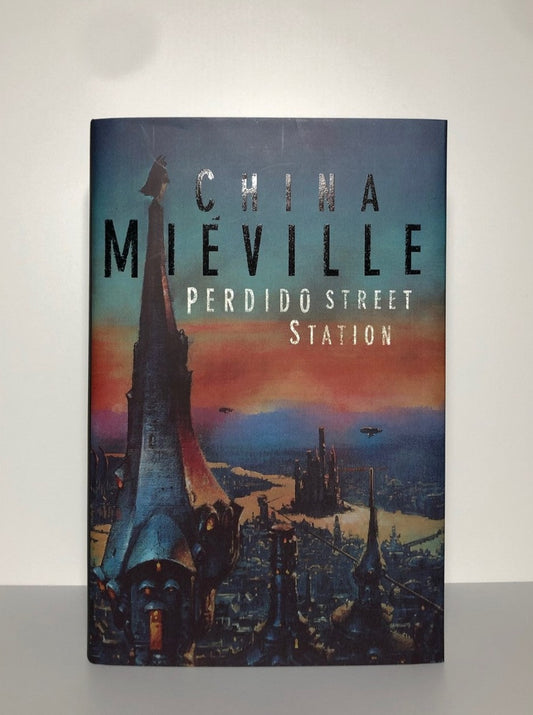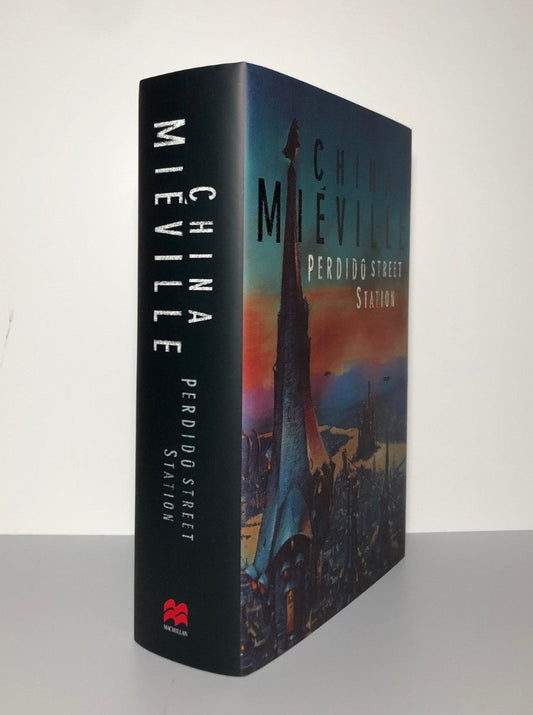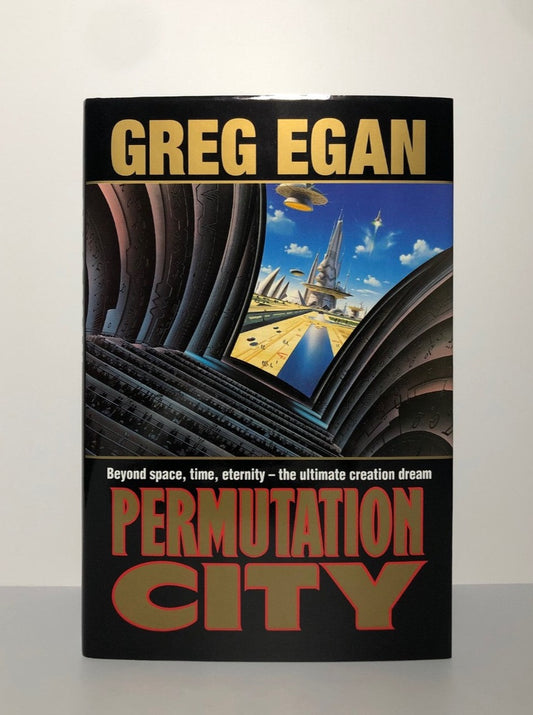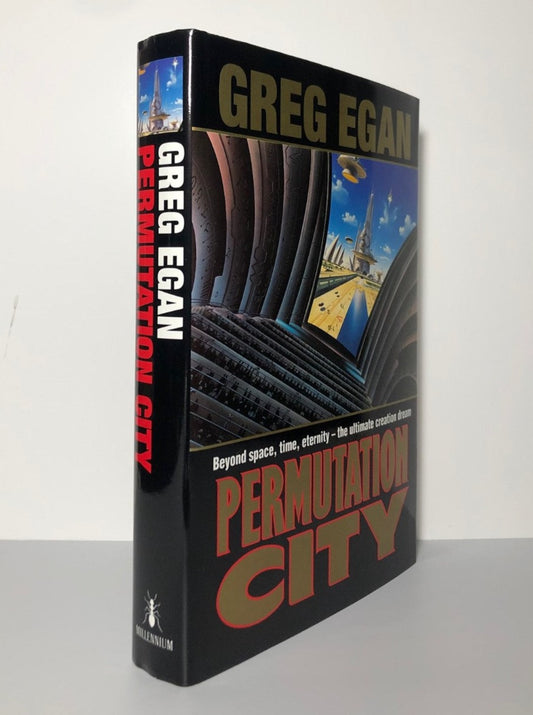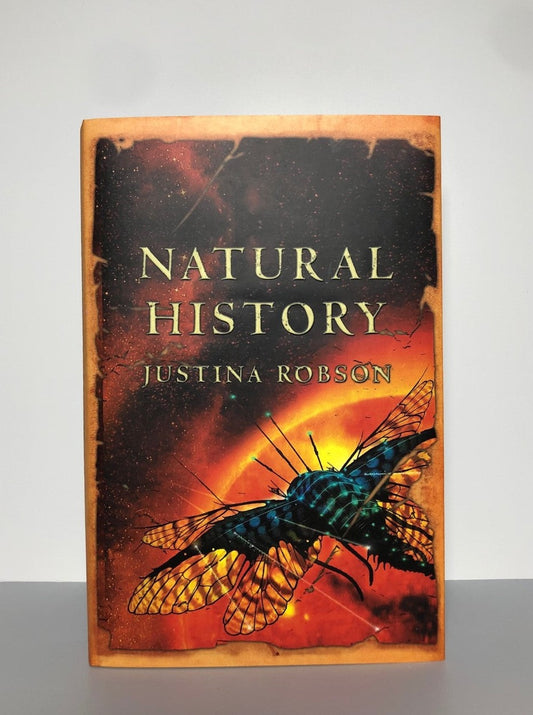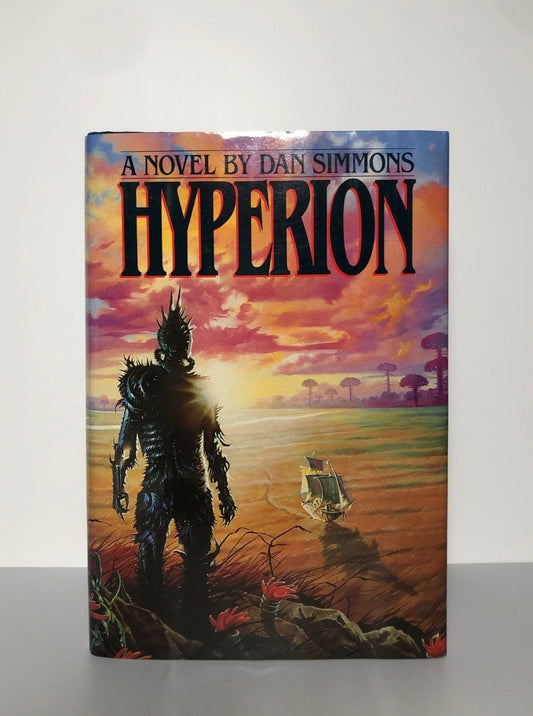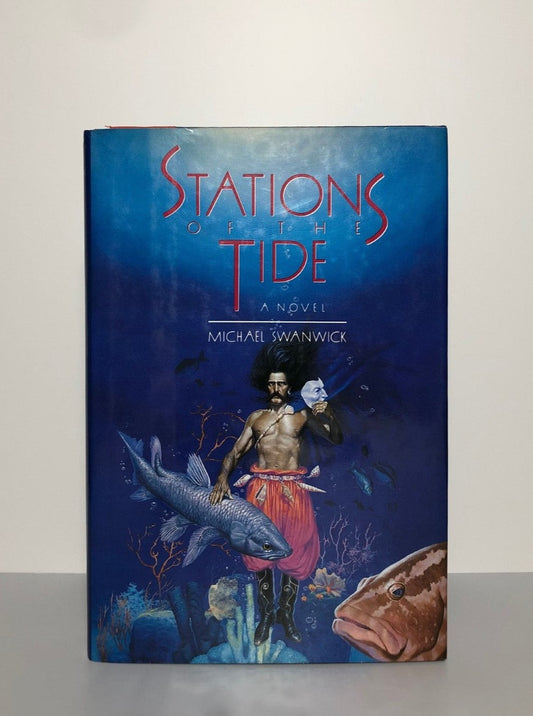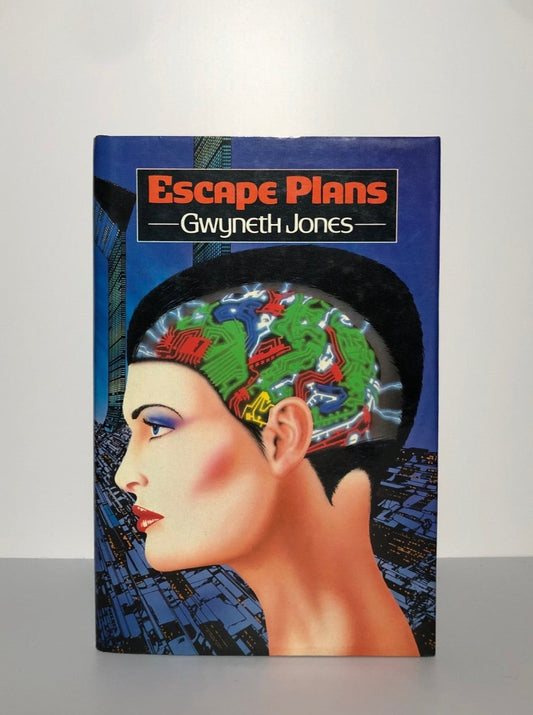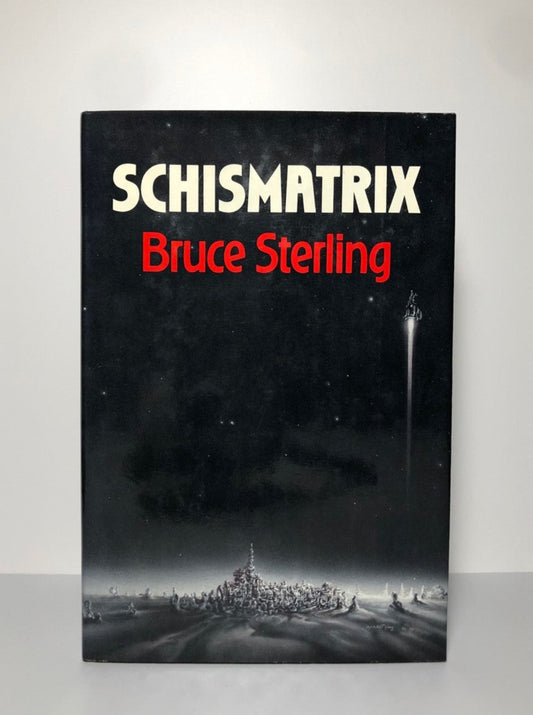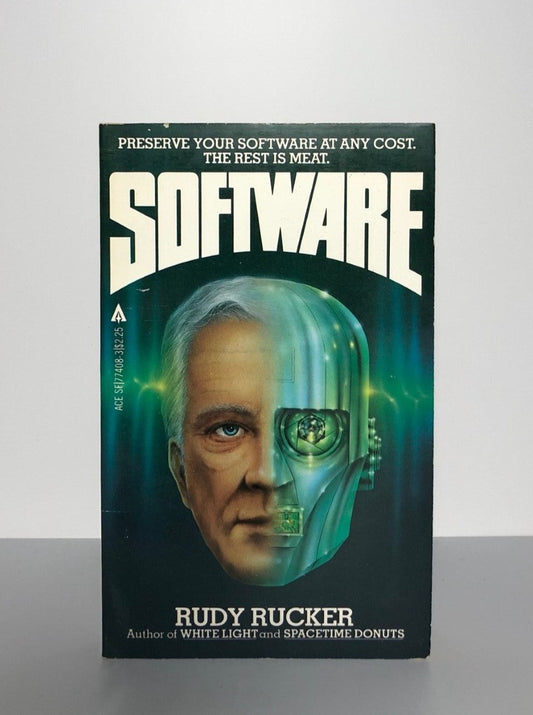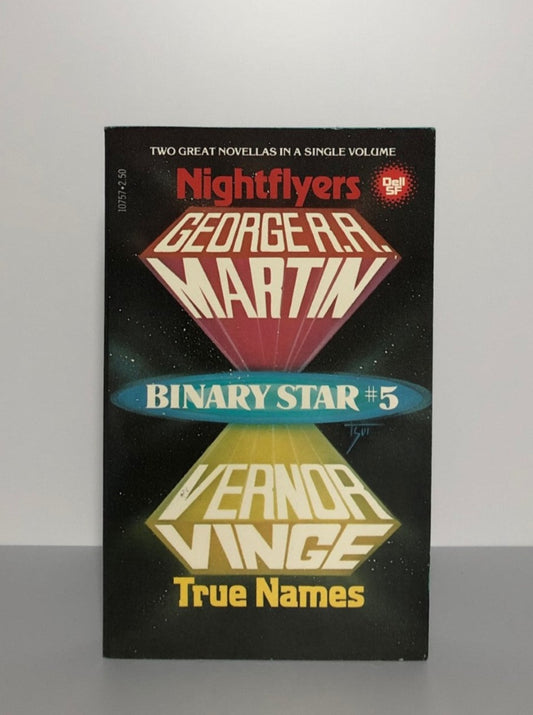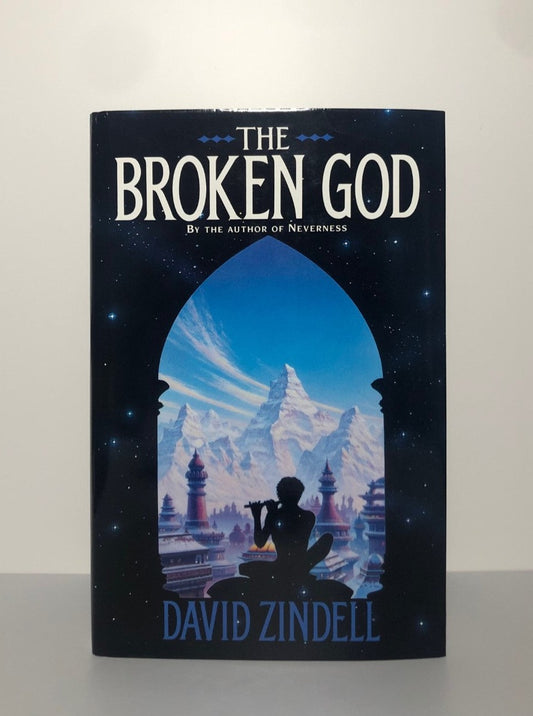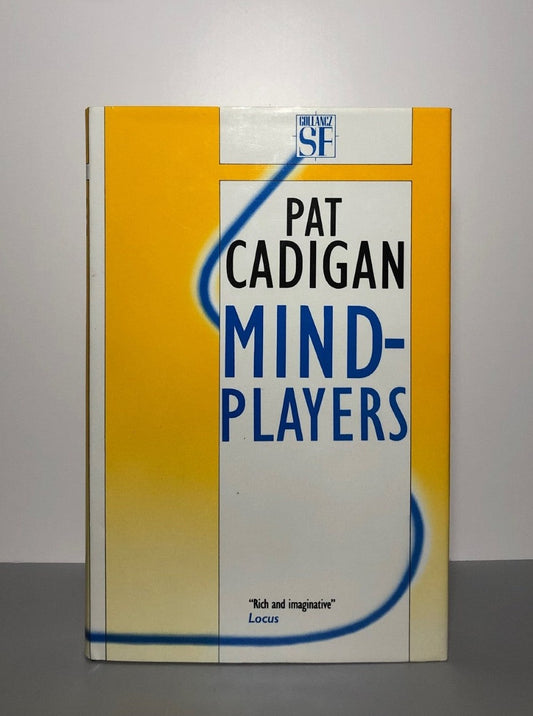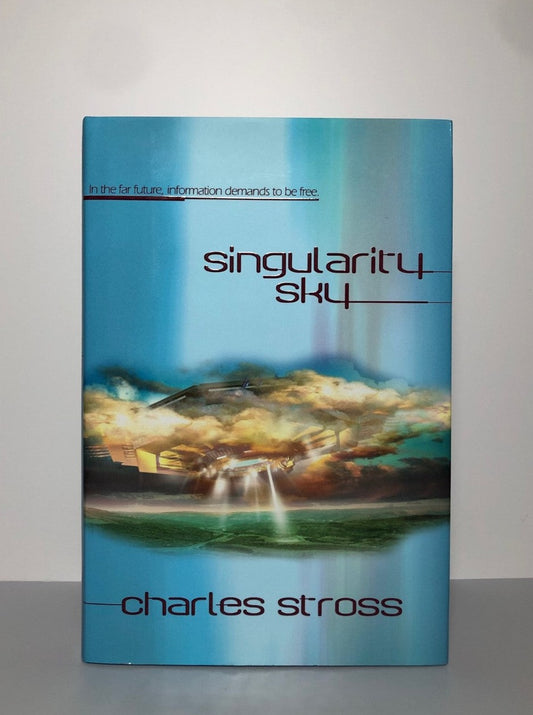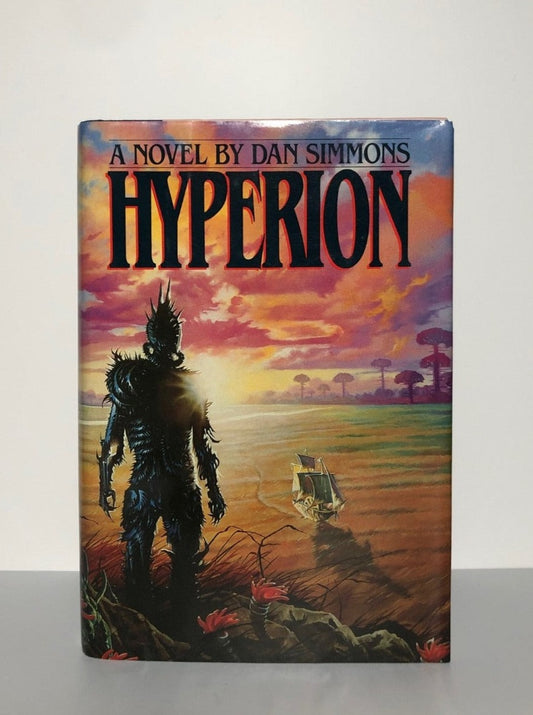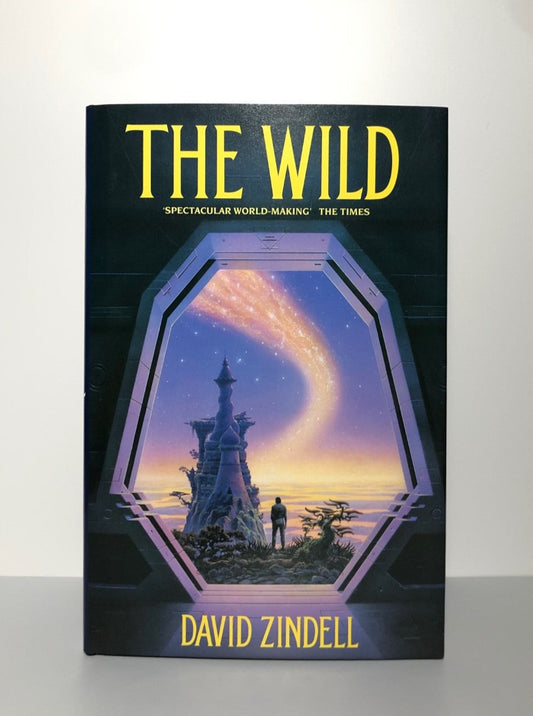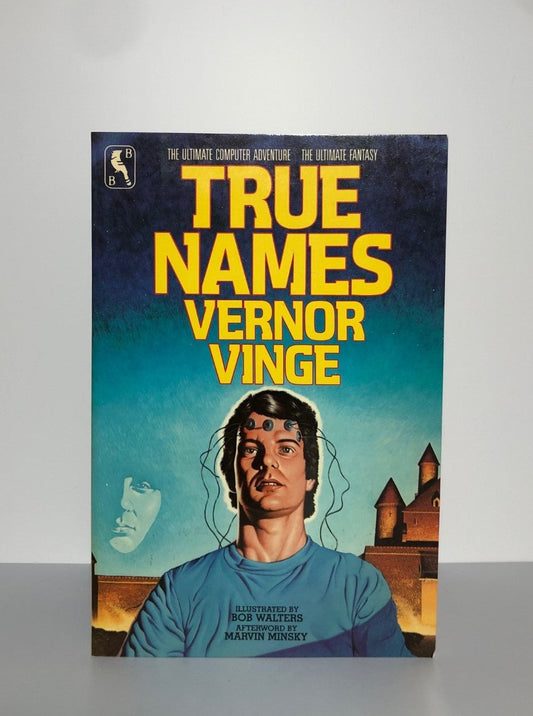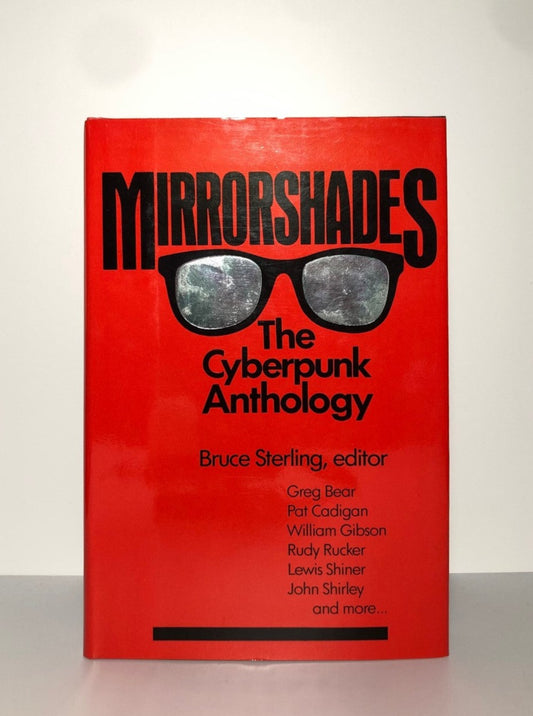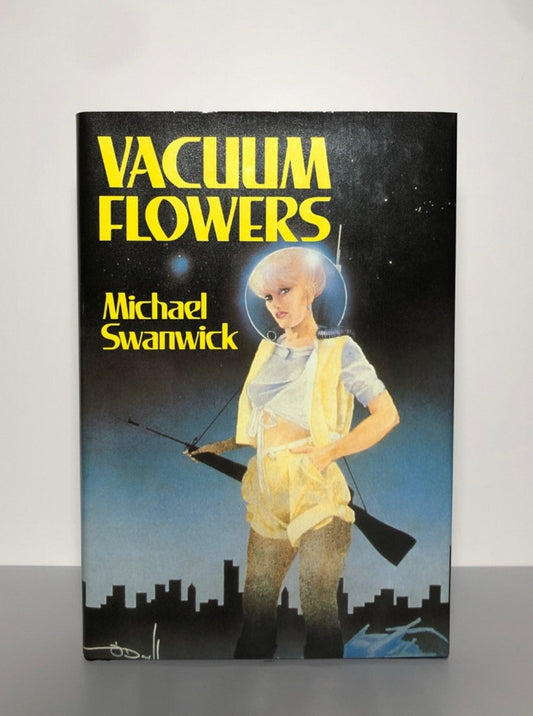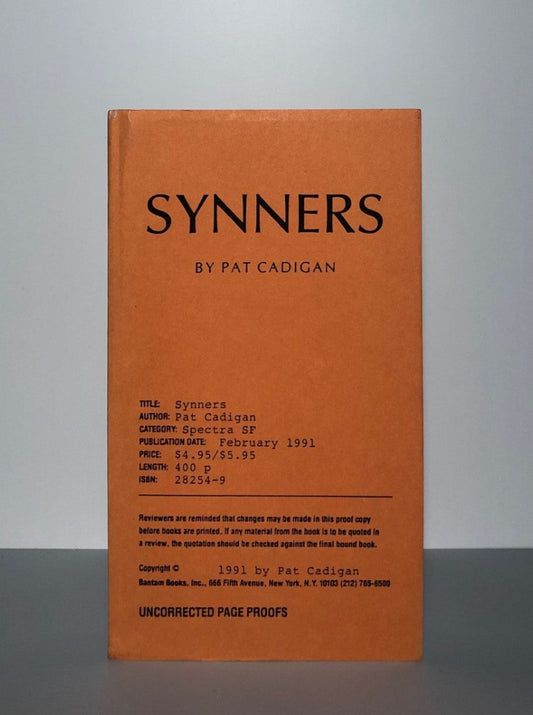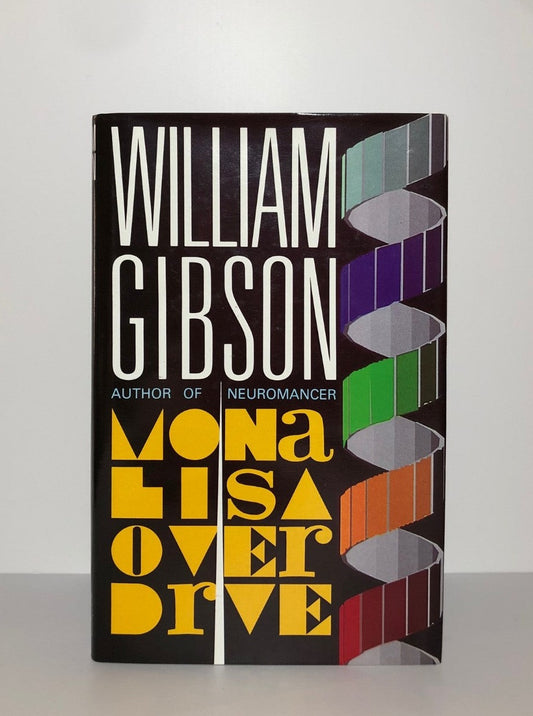Science Fiction Since 1980
Collectors Guide | Selling Collection
Featured Works
-
Fall of Hyperion by Dan Simmons (First Edition, First Print, HC, F)
Regular price £225.00 GBPRegular priceUnit price per -
Accelerando by Charles Stross (First Edition, First Print, HC, F)
Regular price £100.00 GBPRegular priceUnit price per -
Neuromancer by William Gibson (First Edition, First Print, HC, Signed, F)
Regular price £7,000.00 GBPRegular priceUnit price per -
Synners by Pat Cadigan (First Edition, First Print, HC, Signed, VF)
Regular price £400.00 GBPRegular priceUnit price per -
Revelation Space by Alastair Reynolds (First Edition, First Print, HC, Signed, F)
Regular price £275.00 GBPRegular priceUnit price per -
White Queen by Gwyneth Jones (First Edition, First Print, HC, VF)
Regular price £75.00 GBPRegular priceUnit price per -
Perdido Street Station by China Mieville (First Edition, First Print, HC, VF)
Regular price £300.00 GBPRegular priceUnit price per -
Permutation City by Greg Egan (First Edition, First Print, HC, F)
Regular price £400.00 GBPRegular priceUnit price per -
Natural History by Justina Robson (First Edition, First Print, HC, Signed, VF)
Regular price £150.00 GBPRegular priceUnit price per
Collection Strategy
-

Adding to the field
Twilight of Humanity is an ongoing project of identifying the most significant contributions to sf amongst the myriad of pocket-size styles, themes and subgenres that have defined science fiction since 1980.
-

Sign of the times
Twilight of Humanity places high value on works that apart from being great works of fiction also have something important to say about the times we live in, whether political, cultural or technological in nature.
-

Looking into the future
With technology as a main determinant for societal changes, Twilight of Humanity believes that the most important science fiction contain the clues to humanity's future development.
Masterpieces
In our opinion the 10 most important titles since 1980.
-
Accelerando by Charles Stross (First Edition, First Print, HC, F)
Regular price £100.00 GBPRegular priceUnit price per -
Hyperion by Dan Simmons (First Edition, First Print, HC, VF)
Regular price £1,250.00 GBPRegular priceUnit price per -
Neuromancer by William Gibson (First Edition, First Print, HC, Signed, F)
Regular price £7,000.00 GBPRegular priceUnit price per -
Synners by Pat Cadigan (First Edition, First Print, HC, Signed, VF)
Regular price £400.00 GBPRegular priceUnit price per -
Permutation City by Greg Egan (First Edition, First Print, HC, F)
Regular price £400.00 GBPRegular priceUnit price per -
The Handmaid's Tale by Margaret Atwood (First Edition, First Print, HC, NF)
Regular price £360.00 GBPRegular priceUnit price per -
Perdido Street Station by China Mieville (First Edition, First Print, HC, VF)
Regular price £300.00 GBPRegular priceUnit price per
Most Undervalued
What we think are the most undervalued works of science fiction since 1980 in market terms.
-
Stations of the Tide by Michael Swanwick (First Edition, First Print, HC, Signed, NF)
Regular price £120.00 GBPRegular priceUnit price per -
Escape Plans by Gwyneth Jones (First Edition, First Print, HC, VG)
Regular price £50.00 GBPRegular priceUnit price per -
Schismatrix by Bruce Sterling (First Edition, First Print, HC, VF)
Regular price £75.00 GBPRegular priceUnit price per -
Accelerando by Charles Stross (First Edition, First Print, HC, F)
Regular price £100.00 GBPRegular priceUnit price per -
Software by Rudy Rucker (First Edition, First Print, SC, VF)
Regular price £150.00 GBPRegular priceUnit price per -
Binary Star No. 5, True Names by Vernor Vinge (First Edition, First Print, SC, VF)
Regular price £150.00 GBPRegular priceUnit price per -
The Broken God by David Zindell (First Edition, First Print, HC, VF)
Regular price £200.00 GBPRegular priceUnit price per -
Mindplayers by Pat Cadigan (First Edition, First Print, HC, VF)
Regular price £50.00 GBPRegular priceUnit price per
Space Opera
Critically acclaimed space opera, largely ignored or rediculed by the New Wave authors of the 1960s and 1970s, came back big time from the mid-1980s onwards.
-
Schismatrix by Bruce Sterling (First Edition, First Print, HC, VF)
Regular price £75.00 GBPRegular priceUnit price per -
Hyperion by Dan Simmons (First Edition, First Print, HC, VF)
Regular price £1,250.00 GBPRegular priceUnit price per -
Accelerando by Charles Stross (First Edition, First Print, HC, F)
Regular price £100.00 GBPRegular priceUnit price per -
The Broken God by David Zindell (First Edition, First Print, HC, VF)
Regular price £200.00 GBPRegular priceUnit price per -
Natural History by Justina Robson (First Edition, First Print, HC, Signed, VF)
Regular price £150.00 GBPRegular priceUnit price per -
Revelation Space by Alastair Reynolds (First Edition, First Print, HC, Signed, F)
Regular price £275.00 GBPRegular priceUnit price per -
Singularity Sky by Charles Stross (First Edition, First Print, HC, NF)
Regular price £40.00 GBPRegular priceUnit price per -
Hyperion by Dan Simmons (First Edition, First Print, HC, F)
Regular price £1,000.00 GBPRegular priceUnit price per -
Fall of Hyperion by Dan Simmons (First Edition, First Print, HC, F)
Regular price £225.00 GBPRegular priceUnit price per -
The Wild by David Zindell (First Edition, First Print, HC, F)
Regular price £75.00 GBPRegular priceUnit price per
The influencers
From Vernor Vinge's True Names (1981) to Gene Wolfe's The Shadow of the Torturer (1980) and Bruce Sterling's Schismatrix (1985), here follows examples of pioneering work...
-

True Names (1981) by Vernor Vinge
Available WorksTrue Names influenced not only Cyberpunk, but also singularity fiction and postmodern space opera. The work has also had a lasting influence on Silicon Valley. First published as part of a Binary Star double volume work, a single volume was released in 1984 with an afterword by Marvin Minsky, co-founder of MIT's AI laboratory.
-

Synners (1991) by Pat Cadigan
Available WorksPat Cadigan is the most important first-wave Cyberpunk female writer, and with Synners she shatters Cyberpunk’s male cowboy archetype and disrupts Cyberpunk’s idealised masculine disembodiment of technological transcendence. Cadigan’s thoughts on gender fluidity and hybridity form a bridge to second-wave feminist Cyberpunk literature.
-

Schismatrix (1985) by Bruce Sterling
Available WorksSpace opera, largely ignored or rediculed by the New Wave authors of the 1960s and 1970s, came back big time from the mid-1980s onwards. Schismatrix (1985) is an early and hugely influential work of postmodern space opera that has left its clear mark on authors such as Dan Simmons, Iain M. Banks and Alastair Reynolds.
Technological transcendence
The computer took center stage in Cyberpunk and paved the way towards technological transcendence. Now a major theme in much sf, here follows examples of pioneering works...
-

Software (1982) by Rudy Rucker
Available WorksThe main protagonist in Rudy Rucker’s Ware tetralogy (1982-2000), Cobb Anderson, undergoes a series of changes as the series develops, experiencing life in different material formats: cybernetic organism, digital storage unit, computational bio-plastic, and four-dimensional space. It is a hugely influential Cyberpunk work, gradually moving towards pure technological transcendence.
-

Permutation City (1994) by Greg Egan
Available WorksPermutation City is in many ways a natural successor to the mind/body split explored in Cyberpunk. By fleshing out an early stage of simulated life, Greg Egan moves beyond the Cyberpunk trope of ‘jacking in’. Few come close to Egan's masterful treatment of technological transcendence, a theme he took to a step further in Diaspora (1997), imagining pure simulated life.
-

The Broken God (1993) by David Zindell
Available WorksDavid Zindell's epic space opera series, Neverness Universe (1988-98), explores technological transcendence from the point of view of religion, and Zindell lets it define the philosophical rivalty between the series' two main protagonists, Hanuman and Danlo. Inspired by Friederich Nietzsche, Zindell achieves a metaphysical depth rarely seen in other works.
Cyberpunk
Devloping the sf tropes of sentient machine intelligence, neural implans and body enhancements, Cyberpunk literature, which typically champions underground, subversive hacker cultures, has left a huge mark on popular culture.
-
True Names by Vernor Vinge (First Edition, First Print, SC, F)
Regular price £75.00 GBPRegular priceUnit price per -
Mirrorshades The Cyberpunk Anthology edited by Bruce Sterling (First Edition, First Print, HC, F)
Regular price £200.00 GBPRegular priceUnit price per -
Vacuum Flowers by Michael Swanwick (First Edition, First Print, HC, Signed, F)
Regular price £85.00 GBPRegular priceUnit price per -
Synners by Pat Cadigan (Uncorrected Proof, SC, Signed, F)
Regular price £150.00 GBPRegular priceUnit price per -
Binary Star No. 5, True Names by Vernor Vinge (First Edition, First Print, SC, VF)
Regular price £150.00 GBPRegular priceUnit price per -
Mindplayers by Pat Cadigan (First Edition, First Print, HC, VF)
Regular price £50.00 GBPRegular priceUnit price per -
Synners by Pat Cadigan (First Edition, First Print, HC, Signed, VF)
Regular price £400.00 GBPRegular priceUnit price per -
Software by Rudy Rucker (First Edition, First Print, SC, VF)
Regular price £150.00 GBPRegular priceUnit price per -
Neuromancer by William Gibson (First Edition, First Print, HC, Signed, F)
Regular price £7,000.00 GBPRegular priceUnit price per -
Mona Lisa Overdrive by William Gibson (First Edition, First Print, HC, Signed, F)
Regular price £225.00 GBPRegular priceUnit price per
Dystopian interventions
From George Orwell's Nineteen Eighty-Four (1949) to Anthony Burgess' A Clockwork Orange (1962), the history of sf is rich in dystopian tales. Here follows significant interventions since the 1980s...
-

The Handmaid's Tale (1985) by Margaret Atwood
Available WorksSet in late 20th Century New England, United States, only a few years after the onset of a civil war and the instalment of a military dictatorship known as the Republic of Gilead, The Handmaid’s Tale explores the living conditions in a religiously conservative and totalitarian patriarchy where reproduction, as a result of a drop in fertility rates, has become the centre of government policy.
-

Riddley Walker (1980) by Russell Hoban
Available WorksSet in a quasi-medieval world that can be traced to the County of Kent, United Kingdom, long after a nuclear holocaust has wiped out most of humanity, the tragicomedy Riddley Walker envisions a regressed post-apocalyptic society in the throes of repeating the past’s mistakes. Written in a phonetically corrupted version of English which has come to be known as Riddleyspeak, the novel is a masterpiece in of estrangement.
-

The City & The City (2009) by China Mieville
Available WorksThe City & the City takes place in two fictional Eastern European twin cities, two cities superimposed on one another, occupying the same temporal space, sharing the same terrain. China Mievile lets the separation of the cities be the stating point of an investigation into how an oppressive system of government justifies totalitarian rule of law by perverting ideas of 'the other'.
1980s Space Opera
The 1980s saw the return of critically acclaimed space opera: epic tales of galaxy spanning civilisations, unabashedly celebrating the sf subgenre.
-

Hyperion (1989) by Dan Simmons
Available WorksHyperion represents a high point in postmodern space opera with its playful, self-conscious style and appropriation past genres. Themes of posthumanism, sentient machine intelligence and spacetime manipulation naturally raise a number of fundamental questions about what it means to be human.
-

A Fire Upon the Deep (1992) by Vernor Vinge
Available WorksA Fire Upon the Deep is in many ways representative of 1980s space opera. While rival clans of dog-like beings are caught up in a quasi-medieval power struggle on the remote planet of Tines, humanity’s colonisation of the galaxy is constantly under threat from capricious, god-like machine intelligences.
-

Neverness (1988) by David Zindell
Available WorksThere is no greater mystery than the secret of life, and David Zindell’s epic space opera, which is clearly inspired by Friederich Nietzsche's philosophy, launches into an investigation of what it means to be human by envisioning a galaxy teeming with different lifeforms, from engineered primitivist tribes to planet-size machine intelligences.
Space Opera Since 2000
The significant contributions to the space opera subgenre since 2000 are less epic in scale than their 1980s counterparts. Illustrative of what has happened to the sf playing field in general, these works have opened up to 'outside' influence and helped redefine space opera.
-

Revelation Space (2000) by Alastair Reynolds
Available WorksRevelation Space chronicles humanity’s colonisation of space, a precarious and disparate effort that is threatened by a space plague known as the Melding Plague as well as a mysterious, advanced machine civilisation. Alastair Reynolds’ dark realism lends itself particularly well to the long periods of claustrophobic scape travel that has become something of a trademark of his.
-

Light (2002) by M John Harrison
Available WorksSet between the present day and the far future, Light interrogates a future (and present) where the weird conundrums of quantum mechanics such as superposition, entanglement and tunnelling bleed into the macroworld. M John Harrison builds a world where time, space, narrative and lives are suspended in different states of uncertainty, ultimately collapsing in on themselves.
-

Blindsight (2006) by Peter Watts
Available WorksBlindsight follows a posthuman crew onboard the spaceship, the Theseus, as it chases down radio transmissions thought to be of extraterrestrial origin. The work is a multi-layered investigation into the nature and evolutionary purpose of consciousness, both human and alien, strechning to the limit what we thought we knew about our place in the world.
Genre Bending Science Fiction
The opening up of the sf playing field in recent years owes a lot to the authors who have experimented with blending different subgenres.
-

Stations of the Tide (1991) by Michael Swanwick
Available WorksSet on the weird, Kafkaesque planet of Miranda, where magic is conflated with science, Stations of the Tide presents a nightmarishly surreal vision of humanity caught in a dance macabre with monstrous, sentient technology. Swanwick blurs the territorial lines between sf and fantasy, a theme he has explored in several works, and which was later developed further in the work of Justina Robson and China Mieville.
-

Annihilation (2014) by Jeff VanderMeer
Available WorksAnnihilation is set on a fictional coastal stretch along what may be the US East Coast, in a military quarantined zone known as Area X. Tapping into contemporary eco-anxiety, Jeff VanderMeer mixes sf with horror and turns the subject of an alien invasion into a meditation on institutional inertia and paranoia, and ultimately on humanity’s encounter with the unknowable.
-

Perdido Street Station (2000) by China Mieville
Available WorksSet in the hallucinatory, Dickensian city of New Crobuzon, on what may or may not be Earth, Perdido Street Station offers a multi-layered meditation on hybridity and fluidity. The work straddles the genres of sf, fantasy and horror in equal measure, and while it is exemplary of the New Weird literary genre it also helped establish the sf subgenre of Steampunk.
The Award Winners
While we do not pay too much attention to awards, there are some outstanding works which rightfully have been accredited with multiple awards.
-

The Book of the New Sun series (1980-83) by Gene Wolfe
Available WorksThe Shadow of the Torturer (1980) won the British Science Fiction Award (1981) and the World Fantasy Award (1981). The Claw of the Conciliator (1981) won the SF Chronicle Novel award (1982), the Locus award for Best Fantasy Novel (1982), and Nebula Novel award (1982). The Sword of the Lictor (1982) won the SF Chronicle Novel award (1983), and the Locus award for Best Fantasy Novel (1982). The Citadel of the Autarch (1983) won the Campbell Memorial award for Best Science Fiction Novel (1984). The sequel, The Urth of the New Sun (1987) won the SF Chronicle Novel award (1988).
-

New Crobuzon series (2000-4) by China Mieville
Available WorksPerdido Street Station (2000) won the Arthur C. Clarke Award for Best Science Fiction Novel (2001) and the British Fantasy Award (2001). The Scar (2002) won the Locus award for Best Fantasy Novel (2003) and the British Fantasy Award for Best Novel (2003). Iron Council (2004) won the Locus award for Best Fantasy Novel (2005) and the Arthur C. Clarke Award for Best Science Fiction Novel (2005).
-

Hyperion Cantos series (1989-97) by Dan Simmons
Available WorksHyperion (1989) won the Hugo Best Novel award (1990) and the Locus Best SF Novel award (1990). The Fall of Hyperion (1990) won the BSFA Best Novel award (1991), the Locus Best SF Novel award (1991) and the SF Chronicle Novel award (1991). Endymion (1996) came second place in the Locus Best SF Novel award (1997). The Rise of Endymion (1997) won the Locus Best SF Novel award (1998) and the SF Chronicle Novel award (1998).
